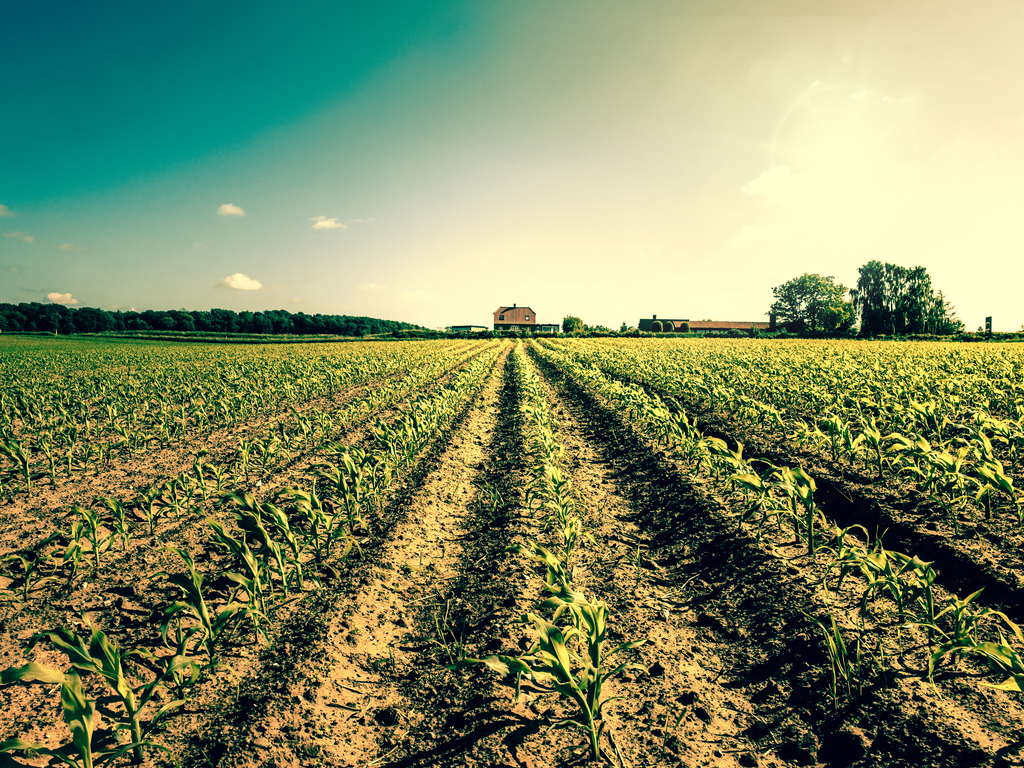Part of the Food Policy Snapshot Series
This is the fourth in a series of Snapshots breaking down the $867 billion Farm Bill that was signed into law on December 20, 2018, and is effective through fiscal year 2023. Each Snapshot focuses on a particular section or topic within the bill and explains its implications for U.S. agriculture over the course of the next five years. This article will focus on Title VI.
Policy Name: Title VI of the Agriculture Improvement Act of 2018, aka the Farm Bill
Location: The 2018 Farm Bill is a bipartisan, federally-enacted law containing provisions and recommendations that are effective on state and local levels.
Overview: Approximately every five years, the United States Congress passes a new Farm Bill whose purpose is to reevaluate the agricultural landscape of the country and determine new protections, procedures, and funding for the various players in this diverse and interwoven network of food producers, traders, and consumers. Read more about the the general purposes and development of a Farm Bill here.
Called in full the Rural Infrastructure and Economic Development title, Title VI of the Bill covers rural development policies and programs across the U.S. Broadly, these policies are intended to support rural growth and economic sustainability for food suppliers and distributors in non-urban areas. Its two primary policies are:
- The Rural Development Act (RDA), which provides grants and loans to rural businesses and organizations that are trying to improve their health, community, and economy. Funding is directed towards a wide range projects, including but not limited to building a sustainable infrastructure, supporting rural businesses, expanding rural health care services, and encouraging community development.
- The Rural Electrification Act (REA), which specifically provides credit, loans, and grants to expand access to telecommunications services in rural areas.
Progress to date: Given how recently the current bill was passed, it is too soon to know how these policy changes will affect rural communities.
Program/Policy Initiated: The RDA was originally enacted in 1972 and has experienced many changes with each reauthorization in order to meet rural needs in the changing economy and environment. The REA was initially enacted in 1936 as part of President Franklin D. Roosevelt’s New Deal in order to expand access to electricity and related services, which by that point were commonplace in the nation’s cities, to the country’s rural areas. Since then, the bill has been amended periodically to ensure that new technologies are included in these provisions.
Food policy category:
- Social and Economic Equity
Program goals: The RDA and REA work to provide rural areas with the financing, infrastructure, and tools such areas often lack relative to their urban and suburban counterparts. Their broader goal is to support long-term development and integration of rural agriculture and business into the larger food economy, and to strike a better balance between rural and urban areas.
How it works: Along with reauthorizing the RDA and REA, the 2018 Farm Bill amends various elements of the two acts to improve their efficacy.
- The RDA was amended to propose the new Subtitle “Improving Health Outcomes in Rural Communities.” This new section would allow for more immediate action and funding in response to a specific rural health emergency by giving the Secretary of Agriculture the authority to enact specific prevention, treatment, and recovery services for the duration of the emergency. The declared health emergency lasts until the Secretary has determined it has ended, or after 360 days, whichever comes first.
- The RDA was also amended to reserve a portion of its funds for rural infrastructure projects with a focus on water and water waste management.
- The REA was amended to increase the minimum standards of service for rural broadband providers, including requirements to increase their breadth of service and develop plans for expanded service in the near and distant future. To support this initiative, the amendment includes funds to guarantee loans and create incentives for strengthening telecommunication providers in more isolated rural areas. Amendments to the REA also include a specific provision expanding 911 access.
Why it is important: Rural areas are a primary part of our national food economy. In order to support agricultural sustainability and business growth in these areas, they must be provided with the tools and finances to create a stable and robust economy and surrounding community.
Evaluation: The amendments included in the 2018 Farm Bill indicate a significant determination to increase support to particularly underserved communities and farmers. The revisions to the Rural Development Act are focused on addressing the limited access and lack of systematic support often experienced in rural areas, thereby sending the message that rural communities are an important part of our nation. The Rural Electrification Act’s focus on expanding communications in rural areas is promising, and is an important step toward connecting them, and specifically their agricultural businesses, to the larger network of food suppliers and distributors across the nation, thus helping otherwise disconnected farms to grow their business and support the local economy.
Similar practices: To understand the context and significance of the changes in the 2018 Farm Bill, it is useful to compare it to previous versions. To learn more about how the 2018 bill compares to the 2014 version, check out the first resource in the “Learn more” section below.
Learn more:
- To learn more about how the 2018 Farm Bill compares to the 2014 version, check out the Congressional Research Service’s report: https://fas.org/sgp/crs/misc/R45197.pdf.
- To learn more about other rural-focused policies included in the 2018 Farm Bill, check out the National Sustainable Agriculture Coalition’s rundown here: https://sustainableagriculture.net/blog/2018-farm-bill-drilldown-local-rural/
Point of Contact:
House bill sponsor Mike Conaway (R-TX-11), Washington, D.C., office:
Phone: (202) 225-3605
Or, email his office via this form.
References:
- H.R. 2 – Agriculture Improvement Act of 2018
- H.R. 2 – A Side-by-Side Comparison
- 2018 Farm Bill Drilldown: Local/Regional Food Systems, Rural Development
- Rural Electrification Act


